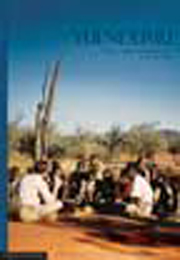Book contents
- Frontmatter
- Foreword
- Preface
- Dedication
- Acknowledgments
- Contents
- Tables and Figures
- 1 The Yuendumu Project: Anthropological Foundations
- 2 Yuendumu and the Warlpiri: Early History
- 3 Yuendumu: The Longitudinal Project 1951–1960
- 4 Yuendumu: The Longitudinal Project 1961–1971
- 5 Occlusal Development and Function in the Warlpiri
- 6 Facial Growth Patterns in the Warlpiri
- 7 People and Personalities Involved with the Project
- 8 The Past, the Present and the Future
- 9 The Research Legacy: Publications, theses and films directly relating to the Yuendumu Study
- Appendics
1 - The Yuendumu Project: Anthropological Foundations
Published online by Cambridge University Press: 05 June 2012
- Frontmatter
- Foreword
- Preface
- Dedication
- Acknowledgments
- Contents
- Tables and Figures
- 1 The Yuendumu Project: Anthropological Foundations
- 2 Yuendumu and the Warlpiri: Early History
- 3 Yuendumu: The Longitudinal Project 1951–1960
- 4 Yuendumu: The Longitudinal Project 1961–1971
- 5 Occlusal Development and Function in the Warlpiri
- 6 Facial Growth Patterns in the Warlpiri
- 7 People and Personalities Involved with the Project
- 8 The Past, the Present and the Future
- 9 The Research Legacy: Publications, theses and films directly relating to the Yuendumu Study
- Appendics
Summary
On 14 August 1951, 15 members of an anthropological research expedition left Adelaide on a Trans Australia Airlines flight for Alice Springs. The University of Adelaide group was travelling to Yuendumu, a remote Aboriginal Reserve established by the Native Affairs Branch of the Commonwealth Government in 1946 as a supply depot for Wailbri (Warlpiri) Aboriginal people from neighbouring regions. Yuendumu was located around a bore on the Alice Springs to Mount Doreen stock route, about 290 kilometres north-west of Alice Springs in the Northern Territory of Australia. Yuendumu Reserve offered a unique opportunity for a multidisciplinary team to observe a group of Aboriginal people who were at an early stage of transition from a nomadic and hunter-gatherer way of life to living on a settlement. Sponsored by the Board for Anthropological Research of The University of Adelaide, the 1951 expedition was the first of many subsequent research visits to Yuendumu.
Several eminent Adelaide scientists were among the team members: T Draper Campbell, Charles P Mountford and Norman B Tindale, anthropologists; H K Fry, anthropologist and medical practitioner; Andrew A Abbie and W Ross Adey, anatomists; Cedric Stanton Hicks, Hugh LeMessurier and David Kerr, physiologists; J Burton Cleland, naturalist and pathologist. Thomas Draper Campbell, a highly experienced anthropologist, who had led many pre-war expeditions to remote regions of South and Central Australia, was the leader of the Yuendumu team. At the time he was Director of Dental Studies at The University of Adelaide and in 1954 he became the university's first Professor of Dentistry.
- Type
- Chapter
- Information
- YuendumuLegacy of a Longitudinal Growth Study in Central Australia, pp. 1 - 22Publisher: The University of Adelaide PressPrint publication year: 2011



